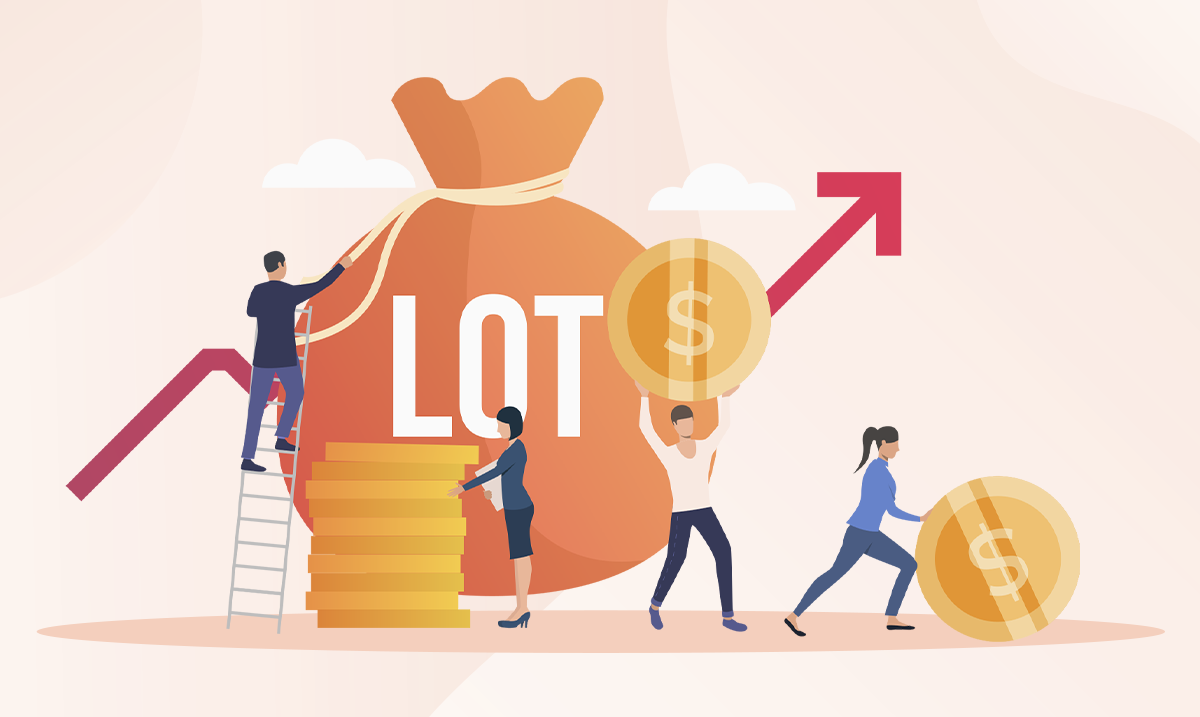What is Bitcoin? Everything You Need to Know About the Digital Gold of the Crypto World


Bitcoin is known as the first and best cryptocurrency in the world.
Bitcoin is a decentralized digital currency that operates independently of any central authority, using blockchain technology to ensure secure and transparent transactions.
In this blog post, we will explore the origins of Bitcoin, understand the mechanics behind its blockchain technology, discuss its economic implications, and address the future possibilities of this digital gold.
We'll uncover how Bitcoin is reshaping financial landscapes, influencing monetary policies, and what it means for you as an investor or enthusiast in this dynamic field. Ready to dive into the world of cryptocurrency? Let's get started.
Contents
What is Bitcoin?
Bitcoin is a decentralized cryptocurrency, without a central authority or single administrator that can be sent from user to user on the peer-to-peer Bitcoin network without the need for intermediaries.
Often referred to as digital gold, Bitcoin mirrors the valuable properties of physical gold. Just as gold is mined from the earth, Bitcoin is mined using powerful computers and complex algorithms. However, unlike a tangible object, Bitcoin is entirely electronic.
What sets Bitcoin apart is that it is not issued or controlled by any government or entity, making its value independent of any single nation's economy. The system operates on a decentralized network where transactions are encrypted and recorded in a public ledger known as the blockchain.
This feature turns Bitcoin into a truly global and borderless currency, free from direct governmental control. This technological backbone ensures transparency, security, and autonomy, making Bitcoin a unique asset in the world of finance.
History of Bitcoin
Bitcoin is a cryptocurrency introduced by an anonymous person or group using the pseudonym Satoshi Nakamoto in 2008. Its main goal was to create a decentralized electronic cash system that operates without intermediaries like banks. Here are some key points in Bitcoin's history:
October 2008: Satoshi Nakamoto published a paper titled "Bitcoin: A Peer-to-Peer Electronic Cash System," introducing the concept of Bitcoin.
January 2009: Nakamoto released the Bitcoin software and mined the first block, known as the Genesis Block.
January 2009: The first Bitcoin transaction occurred between Satoshi Nakamoto and Hal Finney, a cryptographer and Bitcoin enthusiast.
May 2010: The first real-world transaction using Bitcoin happened when programmer Laszlo Hanyecz bought two pizzas for 10,000 Bitcoins, marking the first real purchase with Bitcoin.
Post-2011: Bitcoin gained popularity, and more individuals and businesses started to accept and use it.
As Bitcoin's journey unfolds, it continues to reshape the financial world, challenging traditional systems and introducing new ways of thinking about money and transactions.
What is Blockchain?
Blockchain is a decentralized digital ledger that records transactions across multiple computers so the record cannot be altered without changing all subsequent blocks and the consensus of the network. This technology ensures transparency and security.
Imagine a ledger book used in accounting, but instead of being maintained by one entity, it’s duplicated across a network of computers. Each set of transactions, known as a block, is linked to the previous one, forming a chain. These blocks are secured and bound to each other using cryptographic principles, making them tamper-proof.
The decentralized nature of blockchain means no single entity controls the entire chain. This, along with its transparency and immutability, makes blockchain a powerful tool for verifying and recording transactions, reducing the need for intermediaries, and lowering fraud risk.
Blockchain has applications beyond cryptocurrencies, including supply chain management, healthcare, and even voting systems, promising a future of greater transparency and efficiency in various sectors.
What are Altcoins?
Altcoin is a term used to describe any cryptocurrency introduced after Bitcoin. The word "Altcoin" is a combination of "Alternative" and "Coin," representing alternative Cryptocurrencies to Bitcoin. Altcoins aim to offer new features and enhancements not present or improved upon in Bitcoin. These innovations can include faster transaction speeds, lower fees, different security algorithms, smart contracts, and enhanced privacy capabilities.
For instance, Litecoin uses the Scrypt algorithm instead of Bitcoin's SHA-256. Some well-known altcoins include:
Ethereum (ETH): Known for its smart contract functionality.
Ripple (XRP): Focuses on enabling real-time global payments.
Litecoin (LTC): Offers quicker transaction confirmation times.
Bitcoin Cash (BCH): Provides larger block sizes for faster transactions.
Cardano (ADA): Emphasizes security and sustainability through its layered architecture.
Each altcoin brings unique value propositions, making the cryptocurrency landscape diverse and innovative.
How Bitcoin Works?
Bitcoin operates on a decentralized network of computers called nodes, which maintain a public ledger known as the blockchain. Here's a simple breakdown of how it works:
1. Transactions: When someone sends Bitcoin to another person, the transaction is broadcast to the network. Each transaction includes details like the sender's and receiver's addresses and the amount of Bitcoin being transferred.
2. Mining: Transactions are grouped into blocks. Miners use powerful computers to solve complex mathematical problems, which validate these blocks. This process is called mining. The first miner to solve the problem adds the block to the blockchain and is rewarded with newly created Bitcoins.
3. Blockchain: The blockchain is a chain of all validated blocks. It is a public ledger that records every Bitcoin transaction ever made. Because it’s distributed across the network, it’s highly secure and resistant to tampering.
4. Verification: Each node in the network has a copy of the blockchain and verifies new transactions against it. If a transaction is valid, it’s added to the blockchain. This verification process ensures that Bitcoins can’t be spent twice and that the network remains trustworthy.
5. Wallets: To interact with Bitcoin, users need a digital wallet. This wallet contains private keys, which are secret codes that allow users to send Bitcoin. Losing these keys means losing access to the Bitcoin in the wallet.
Bitcoin’s decentralized and transparent nature, combined with its secure transaction process, makes it a revolutionary form of digital currency. This system eliminates the need for intermediaries like banks, enabling peer-to-peer transactions on a global scale.
Why is Bitcoin Called "Digital Gold"?
Bitcoin is often called "digital gold" for several reasons. Like gold, Bitcoin has characteristics that make it valuable and a good store of value.
Scarcity: Bitcoin's finite supply is limited to 21 million coins, similar to gold's limited availability. This scarcity contributes to its value.
Durability: Bitcoin, being digital, is not prone to physical damage or decay like traditional money.
Portability: Bitcoin can be transferred across the globe instantly, unlike physical gold.
Divisibility: Bitcoin can be divided into smaller units called Satoshis, making it easy to use for any transaction size.
Store of Value: Like gold, Bitcoin is seen as a hedge against inflation and a safe haven during economic downturns. Investors often use Bitcoin to preserve their wealth when traditional currencies are unstable.
Security: Blockchain technology provides high security, making transactions transparent and immutable.
These traits make Bitcoin comparable to gold, earning it the name "digital gold."
Key Features (Characteristics) of Bitcoin
Bitcoin, as the first and most well-known cryptocurrency, has unique features that set it apart from traditional financial systems and other digital currencies. Here are some of its key characteristics:
1. Decentralization: Bitcoin is not controlled by any government, institution, or central authority. The Bitcoin network is managed by a distributed system of computers (miners) around the world.
2. Transparency: All Bitcoin transactions are recorded in a public ledger called the blockchain. Anyone can view these transactions, but the identities of the users remain anonymous.
3. Pseudonymity: Users can make transactions without revealing their identities. Each user is identified by one or more Bitcoin addresses, not linked to personal information.
4. Security: Bitcoin uses advanced cryptography to secure transactions and store assets. The network is resistant to attacks due to its decentralized structure and high computational power.
5. Limited Supply: The number of Bitcoins that can be mined is capped at 21 million units. This feature gives Bitcoin an anti-inflationary property, as new Bitcoin creation will halt once this limit is reached.
6. Immutability: Transactions recorded on the Bitcoin blockchain are nearly impossible to alter or delete, increasing security and trust in the system.
7. Portability: As a digital asset, Bitcoin can be easily and cheaply transferred over the internet to anywhere in the world.
8. Divisibility: Each Bitcoin can be divided into 100 million smaller units called Satoshis, allowing for tiny transactions.
9. Non-Counterfeitability: Due to its cryptographic techniques and decentralized nature, counterfeiting Bitcoin is nearly impossible.
10. Global Access: Bitcoin is accessible without geographical or banking restrictions. Anyone with internet access can use it.


Due to its features, Bitcoin has become very popular among users and investors as an innovative monetary system.
These features have contributed to Bitcoin's popularity among users and investors, establishing it as a revolutionary monetary system.
Types of Transactions in the Bitcoin Network
In the Bitcoin network, transactions are categorized into several main types, each with distinct features and applications. Here are the primary types of transactions:
1. Standard Transactions: These are the most common type of transactions where payments are made to a public address, also known as a Bitcoin address.
2. Multisign Transactions: These transactions are sent to addresses that require multiple signatures to authorize the spending of funds. For example, it might require 2 out of 3 signatures to validate a transaction.
3. Unconfirmed Transactions: These transactions have been broadcast to the network but are not yet recorded on the blockchain. They remain in the mempool (memory pool) until miners confirm them by including them in a block.
4. Time Locked Transactions: These transactions include time-based conditions and can only be spent after a certain period or when a specific block number is reached. They can be used to create smart contracts or ensure financial commitments.
5. SegWit Transactions: Introduced with the SegWit (Segregated Witness) upgrade, these transactions separate signature data (witness data) from other transaction parts, reducing transaction size and increasing blockchain capacity.
Each type of transaction serves a unique purpose, contributing to the flexibility and robustness of the Bitcoin network.
Bitcoin’s Role in the Financial System and Investment Landscape
Bitcoin is a key player in the financial system and investment landscape:
Decentralized Finance (DeFi): Bitcoin operates outside traditional banks and governments, offering financial services without intermediaries, leading to lower fees and increased accessibility.
Store of Value: Like gold, Bitcoin serves as a store of value. Investors view Bitcoin as a hedge against inflation and economic instability. Its finite supply of 21 million coins ensures scarcity, driving its value over time.
Investment Asset: Bitcoin is a popular investment due to its potential for high returns. Unlike traditional assets, Bitcoin is highly volatile, presenting both opportunities and risks. Many institutional investors now include Bitcoin in their portfolios, legitimizing it as an asset class.
Transaction Medium: Bitcoin is used as a medium of exchange. Some businesses accept Bitcoin for goods and services, leveraging its borderless and decentralized nature. Its high volatility can impact its effectiveness as a transaction medium.
Innovation Catalyst: Bitcoin has sparked innovation in finance. Its blockchain technology has led to the development of various applications beyond cryptocurrencies, including smart contracts and decentralized applications (dApps).


Bitcoin is known as the king of cryptocurrencies in financial markets.
Briefly, Bitcoin's unique characteristics position it as a revolutionary force in finance, influencing investment strategies, and driving technological advancements. As the digital economy evolves, Bitcoin’s role is likely to expand, shaping the future of global finance.
Advantages and Challenges of Using Bitcoin
Like any technology, Bitcoin comes with its own set of advantages and challenges that users should be aware of:
Decentralization: One of Bitcoin's standout features is its decentralization. Unlike traditional currencies managed by a central institution, Bitcoin operates on a peer-to-peer network. This ensures that no single entity, such as a government or bank, has full control over it. While this decentralization gives users significant financial independence, it also means that the responsibility for managing and securing your assets lies with you. There is no organization or individual accountable for your security.
Price Volatility: Bitcoin's price volatility can act like a double-edged sword, potentially leading to significant gains or losses. It's recommended to conduct thorough analysis and keep up with cryptocurrency news before trading Bitcoin. One of the services provided by Trendo broker for traders is the analysis of the Bitcoin symbol on a continuous and up-to-date basis, which traders can take advantage of by visiting Trendo's YouTube page.
Security, Privacy, and Transparency: Bitcoin's cryptographic foundation ensures that once a transaction is added to the blockchain, it cannot be altered, providing high security. However, it's crucial to emphasize that while the technology is secure, individuals can still fall victim to fraud. Bitcoin transactions are irreversible, so vigilance is essential.
Transaction Fees and Speed: Bitcoin transactions often incur lower fees compared to traditional payment methods, especially for cross-border transfers. However, during periods of high network activity, users might experience increased fees and longer confirmation times.
Environmental Impact: The significant energy consumption by miners to validate Bitcoin transactions has raised environmental concerns. Optimistically, Bitcoin mining has accelerated investment in renewable energy sources, with miners seeking affordable and sustainable energy options.
These features make Bitcoin a groundbreaking financial system, but it's important for users to understand and navigate its complexities.
How to Buy and Store Bitcoin Safely?
Buying and storing Bitcoin safely involves a few crucial steps:
1. Choosing a Reputable Exchange: Select a reliable cryptocurrency exchange like Trendo, Binance, or Kraken. Ensure the platform is secure and has a good reputation.
Read more: Tutorial on Opening a Forex Account & Authentication in Trendo
2. Creating an Account: Sign up for an account on your chosen exchange. This usually involves providing some personal information and verifying your identity.
3. Securing Your Account: Use strong, unique passwords and enable two-factor authentication (2FA) for added security. This helps protect your account from unauthorized access.
4. Buying Bitcoin: Once your account is set up and secured, deposit funds using a bank transfer, credit card, or other payment methods offered by the exchange. After depositing, you can buy Bitcoin through the exchange’s trading platform.
5. Storing Bitcoin: Move your Bitcoin from the exchange to a secure wallet. There are two main types:
Hardware Wallets: Physical devices like Ledger or Trezor that store your Bitcoin offline, providing high security against hacks.
Software Wallets: Applications like Exodus or Electrum that store your Bitcoin on your computer or mobile device. These are more convenient but can be less secure than hardware wallets.
6. Backup and Recovery: Backup your wallet’s private keys or recovery phrases in a secure location. Losing these means losing access to your Bitcoin.
7. Regularly Update Software: Keep your wallet software and any related applications updated to protect against security vulnerabilities.
8. Be Cautious of Scams: Always be wary of phishing scams and fake websites. Only use official links and double-check URLs before entering any sensitive information.
By following these steps, you can buy and store Bitcoin safely, protecting your investment from potential threats.
How to Earn Income from Bitcoin?
There are several ways to earn income from Bitcoin, each with its own benefits and challenges. Here are some of the most common and effective methods:
1. Mining: Bitcoin mining involves using computer power to solve complex mathematical problems and validate transactions on the Bitcoin network. Miners are rewarded with new Bitcoins. Mining requires specialized hardware and consumes significant energy.
2. Buying and Holding: This strategy involves purchasing Bitcoin and holding it for a long period, hoping its value will increase. Many early Bitcoin investors have made substantial profits using this method.
3. Day Trading: Day traders buy and sell Bitcoin over short time periods to profit from price fluctuations. This approach requires market analysis and trading experience.
4. Investing in Startups and Blockchain Projects: Some individuals invest in startups and projects related to blockchain and cryptocurrencies, benefiting from the growth and development of these technologies.
Each method has its own advantages and disadvantages, requiring thorough research and understanding. Choosing the right approach depends on your goals, knowledge, and experience.
Cryptocurrency Regulations around the World
Cryptocurrency regulations vary greatly from country to country and are constantly evolving. Here's an overview of regulations in some key regions:
United States: Bitcoin and other cryptocurrencies are recognized as legal assets and are subject to financial and tax regulations. The Securities and Exchange Commission (SEC), the Commodity Futures Trading Commission (CFTC), and the Financial Crimes Enforcement Network (FinCEN) oversee activities related to digital currencies.
European Union: Member countries have different regulations, but generally, cryptocurrencies are recognized as legal assets. The European Securities and Markets Authority (ESMA) and the European Central Bank (ECB) play crucial roles in regulating and overseeing cryptocurrency activities. Most EU countries consider cryptocurrencies taxable assets.
Japan: Japan is a leader in adopting and regulating cryptocurrencies. Bitcoin is recognized as a legal method of payment. Cryptocurrencies in Japan are subject to capital gains tax.
Iran: In Iran, Bitcoin mining is legal and requires a license. However, using cryptocurrencies for payments is prohibited. The Ministry of Industry, Mine, and Trade issues licenses for mining. There are no specific tax regulations for cryptocurrencies, but miners must use electricity at designated rates.
These regulations are continually changing and updating, so it's important to stay informed with the latest information from reputable sources.
Conclusion
The journey of Bitcoin, from its inception as a whitepaper by Satoshi Nakamoto to its current status, highlights the vast potential of this technology. Money has evolved from bartering goods to coins, from coins to paper money, and now we are on the brink of a digital revolution with Bitcoin leading the charge.
However, the future of Bitcoin depends on our ability to effectively address the challenges associated with it. It’s also essential to note that having sufficient knowledge is crucial for entering the world of Bitcoin and cryptocurrencies. Bitcoin is not just a currency or investment; it represents a fundamental change in how we understand and use money.
So, before diving into trading, make sure to understand the security principles and real-world applications of Bitcoin. Approach any promising opportunities with caution and always stay informed.
Frequently Asked Questions (FAQs) About Bitcoin
What is the minimum amount of Bitcoin you can buy?
Is Bitcoin a safe investment?
What is Bitcoin digital gold?
Is it possible to trade Bitcoin in Trendo Broker?
How is Bitcoin different from other cryptocurrencies?
Can Bitcoin be converted to cash?
Why is Bitcoin the next gold?
Why does Bitcoin’s price fluctuate so much?
How long does a Bitcoin transaction take?
Is Bitcoin legal in all countries?
What is Bitcoin mining, and can anyone do it?
Article similaire
Le plus visité
0


















